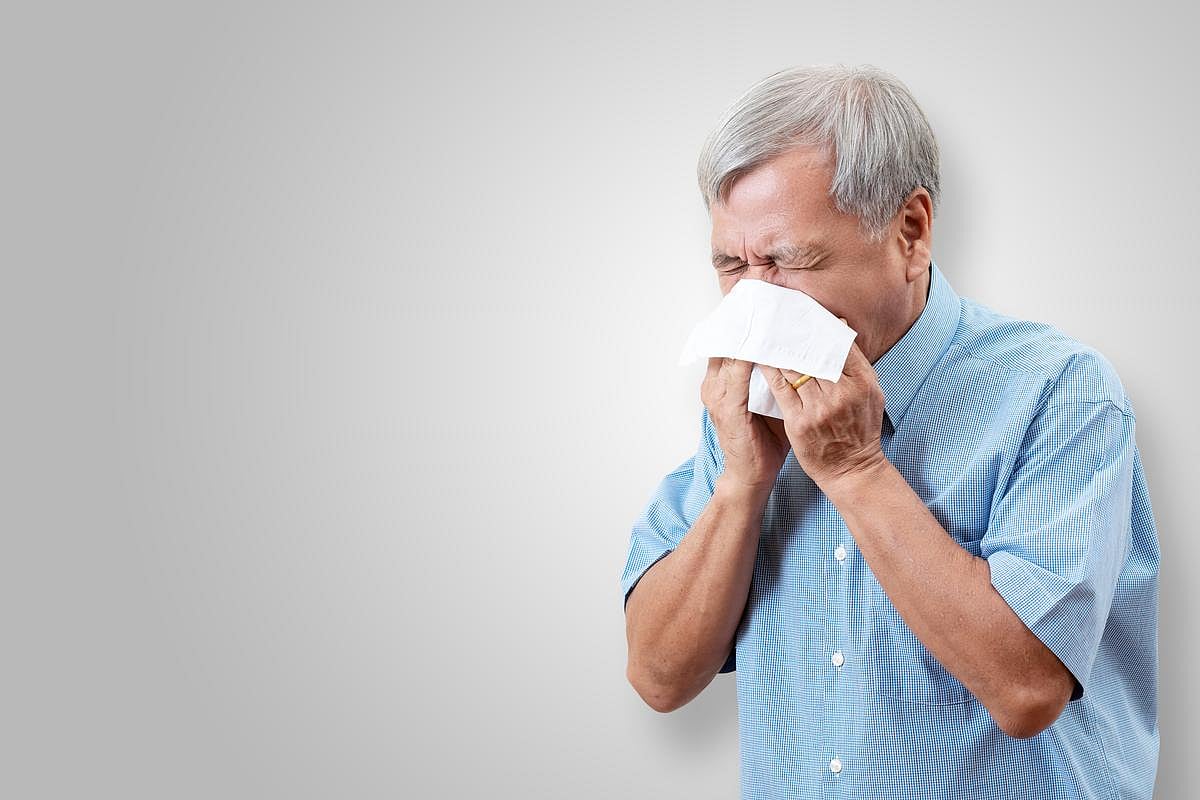Get Healthy!

- Todd A. Mahr, MD, Executive Medical Director, American College Of Allergy, Asthma And Immunology
- Posted December 18, 2024
Tools You Can Use to Control Winter Asthma, Allergy Symptoms
Winter is here, and that can make it difficult for those with asthma to control their symptoms.
The cold air that comes with cooler temperatures can contribute to asthma flare-ups, as can increased respiratory infections and seasonal allergies.
It’s essential to manage your asthma to keep yourself healthy throughout the season. Some of the strategies mentioned below will help make your winter more enjoyable and ensure your symptoms are better controlled.
Managing Winter Asthma Triggers
In addition to medication, managing environmental triggers is vital for asthma control during winter. For my patients with asthma, I recommend finding ways to warm the air they are breathing when outside. Cold air can restrict airways, leading to increased symptoms. Try wearing a scarf or mask over your mouth and nose when you’re outside in cold weather. Indoor air quality can be affected by heating systems, which can circulate dust and allergens. Regular cleaning, using air purifiers, and maintaining appropriate humidity levels can help create a more asthma-friendly environment.
Getting a Flu Shot is Vital
It’s not too late to get a flu shot. Immunization against the flu is one of the most effective ways to protect against respiratory infections during winter months. If you have asthma, influenza can lead to severe complications, including exacerbations that may require you to be hospitalized. The American College of Allergy, Asthma and Immunology recommends everyone 6 months and older in the U.S. should get a flu shot. The vaccine helps reduce the risk of contracting the virus. It can also lessen how severe the symptoms are if you or your child becomes infected.
Maintenance ICS Inhalers
For most people with asthma, particularly those with mild to moderate symptoms, using maintenance inhaled corticosteroids (ICS) is a cornerstone of effective management. ICS inhalers work by reducing inflammation in the airways, making them less reactive to triggers. During winter, cold air can make asthma symptoms worse. Using a maintenance ICS inhaler regularly can help keep inflammation under control and prevent flare-ups. Let your allergist know if you have any changes in your symptoms so they can change dosages or medications if necessary.
What is SMART Therapy?
You may have recently heard about SMART (Single Maintenance and Reliever Therapy). It’s a somewhat new approach to asthma management that combines the use of a single inhaler for both maintenance and symptom relief. This method simplifies treatment by allowing patients to use the same inhaler for daily control and as needed for quick relief. SMART therapy is particularly beneficial during winter when symptoms may fluctuate due to environmental changes. Check with your allergist to see if this is an option for you.
Can Biologics Help Control Your Severe Asthma?
If your asthma is severe, biologic treatments may help control your symptoms. A newer category of treatments, biologics are medications that help control asthma and other allergic conditions if you don’t respond to typical therapies like inhalers or oral medications. Biologics, known as monoclonal antibodies, are designed to target things that cause inflammation in the system. Most biologics are injectable medications that can be taken at home once you’ve had instructions on how to use them. Your allergist can help you determine whether you’re a good candidate for this type of treatment.
Asthma management in winter can be a challenge, but with the right tools, your symptoms will be better controlled. By getting your flu shot, using maintenance ICS inhalers, considering SMART therapy and understanding the role of biologics for severe asthma, you can effectively manage your condition and reduce the risk of flares.
SOURCE: Todd Mahr, MD, executive medical director, American College of Allergy, Asthma and Immunology




